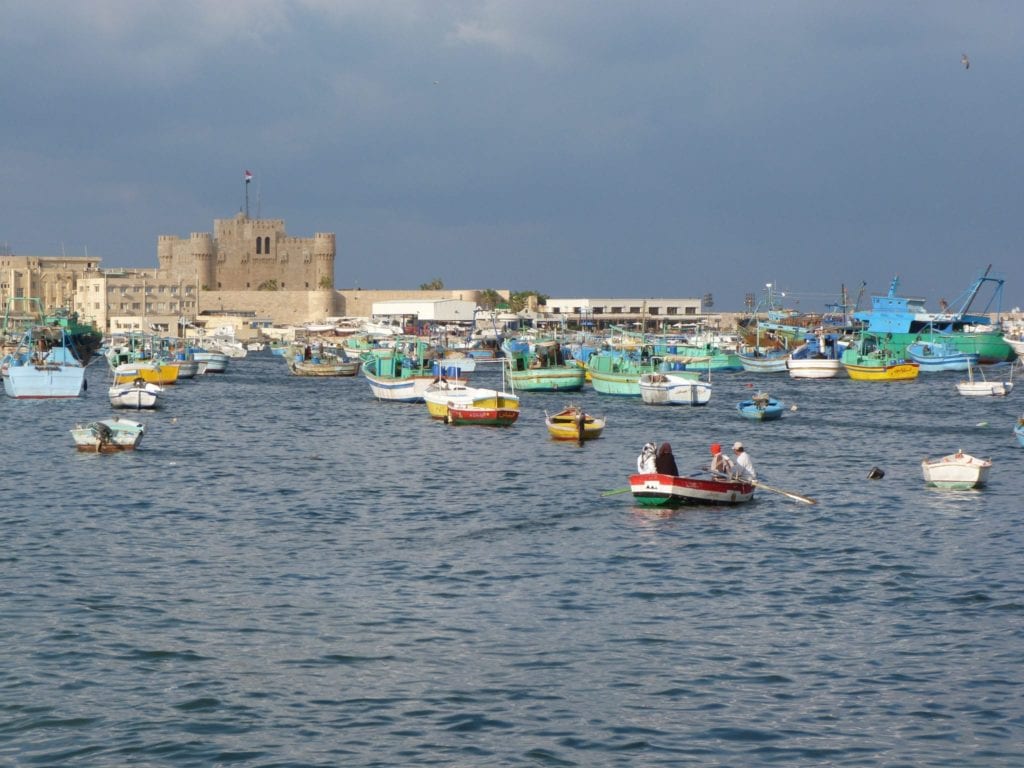“Demasiados charcos” (“too many puddles”), a senior Spanish official told me when discussing AMWAJ. Too many ‘’charcos”, I kept saying that word over and over again: ‘charcos’. Sounds like narcos. But there are no narcos around the Mediterranean, maybe some contraband of cigarettes, weapons and people, but not the trafficking of hard, deadly drugs. This is a shared playground for tourism, general leisure, and some sporadic, recurrent wars, ongoing conflicts, festering like stomach ulcers.
When looking around the Med, everything is so close and yet everything seems so far. You can see Spain from Tanger, and you can almost see Malta from Tunisia. You can see the mainland of Italy from the Island of Elba. You can see the Syrian island of Arwad from Tartus. You can almost distinguish Cyprus from Beirut, not quite, perhaps due to the air pollution and the humidity. Territories around the Med remain just beyond the field of vision, where the horizon gets hazy and imagination begins.
And the sea is the same: this Green Sea for the Pharaohs, White Sea for the Arabs, Our Sea (mare nostrum) for the Romans, the Middle Sea or Mezzaterra for others, but this sea is not one, it is fragmented and torn, pulled and polluted, claimed and named by different authorities as their own sub-seas: the Tyrrhenian Sea, the Ionian Sea east of Sardinia, the Ligurian Sea off of Genoa, the Aegean Sea surrounding the Greek archipelago, the Adriatic Sea between Italy, Slovenia and what some call the Western Balkans. And many others… The French historian, Fernand Braudel, called the Mediterranean ‘a sea of many seas’, different and divided but sharing the same water.

These seas make me think of puddles, interconnected puddles that are attached by the same splashing and splattering of water, the ebb and flow of its shallow tides, the Mediterranean – not being an ocean, its waves are not worth mentioning. It’s a big bathtub, lukewarm, transparent and turquoise in many parts, for tourists and locals alike to enjoy, to watch the hours lap away as the waves roll in and out, languidly. There is a slowing down of time, as if the seconds needle on the clock were finding it hard to keep ticking away. Perhaps it would prefer to go more slowly. There’s no point in going fast.
Little seas are big puddles. Maybe when you were little, you also enjoyed jumping in puddles on your way home from school, jumping up high and coming down hard with both feet in the shallow water so it would splash out on the sides, sometimes reaching the next adjacent puddle, splattering drops into that one – sharing the waters. The harder you come down, the further the water goes out in all directions, and the less your feet get wet. That’s the trick about puddle-splashing: bounce hard and fast.
It’s the same for politics. Too many ‘charcos’, not even narcos, just these little puddles of unrest around the Med: from the perennial Arab-Israeli conflict that everyone has pushed back to fourth or fifth place on the order of foreign policy; to the unstoppable Syrian civil war and the impressive destruction of Libya; to the Catalan secessionist movement from Spain and Corsican freedom fantasies from France; to the wall of attrition between Morocco and Algeria straight down the border into the desert and the contested Western Sahara; and on to the divided capitals of Nicosia and Jerusalem, frequently referred to as ‘powder-kegs’ for regional politics. These are ‘charcos’ that contaminate relations so easily, bounce over boundaries, overflow so readily into others…

Too many ‘charcos’ and too much importance placed on each puddle. The Mediterranean is no longer the center of the world, the famous cradle of civilizations, crisscrossing and intertwining the three monotheistic religions and their cultural progenies. This is a dormant, frustrated backwater of history now. The Mediterranean is a big puddle comprising of many little puddles, all with their own politics and yet all connected by the same body of water. Now is the time to bring the movement of these waters together around the sharing of natural resources and to create a confederation of cities and states for their citizens: now is the time for the emergence of a water and energy community.